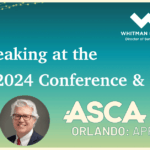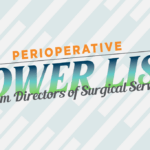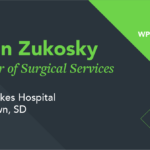15 Conference Sessions You Don’t Want to Miss at AORN 2020
Come see us in Anaheim, CA at AORN Global Surgical Conference & Expo 2020—the largest gathering of perioperative nurses in the world. Experience one of the most education-packed and inspiring perioperative events of the year! Join us at #AORN2020, March 28-April 1, for 70+ education sessions, 450+ exhibits on the latest technology and trends, and the opportunity to network with your peers and industry experts. https://www.aorn.org/surgicalexpo
We have compiled a list of 15 break out sessions with a brief explanation of what to expect.
Surgical Conference
Surgical Smoke Intervention and Implementation Plan to Effect Practice Change
A smoke evacuation program requires the commitment of the entire health care team for the optimal intervention of practice to protect the staff from the potentially harmful effects of surgical smoke.
Learning Objectives:
– Describe methods to lead organizational change to design a smoke intervention plan.
– Evaluate best practices evidence to support clinical decisions.
– Relate quality improvement metrics for successful smoke evacuation program implementation.
Global Track Welcome and Opening Session: The Year of the Nurse
From the beginning of the nursing profession, data analysis has been important. Becky Patton will focus on the contribution of perioperative nursing in the improvement of patient outcomes. She will also discuss some of the common perioperative issues that perioperative nurses from every area of the global deal with on a daily basis.
Raiders of the Lost Specimen: An Adventure to Find the Perfect Workflow
Learning Objectives:
– Describe Lean principles.
– Demonstrate the use of Lean tools to improve compliance on quality initiatives.
– Utilize the principles shared in the presentation to spread best practices throughout their organization.
The Power of Risk-Taking in Shaping Excellent Practice
Some attributes of a risk-taker are the willingness to look at things differently, to ask the uncomfortable questions no one else will ask, to see the “elephant in the room,” or dare to try what has not been done before. You will hear examples of risk-taking by nurses, past and present, and how their decision to act has changed the status quo and improved patient outcomes.
Learning Objectives:
– Identify lasting results of at least two risk-taking nurses.
– Consider how you can use risk-taking in your work environment.
Are You Ready to Lead Your Professional Organization?
The pathway to leadership can be very different for each individual. Many strive for leadership positions but are unsure how to obtain them, or the right path to get them there. Focusing on the pathway to leadership amongst colleagues, and other professionals are key to their success. Presented by Members of the Nominating Committee.
Learning Objectives:
– Identify pathways to AORN leadership.
– Identify the roles and responsibilities of AORN elected positions at the national level.
– Describe the skill set, characteristics, and top attributes of strong leaders.
The Value of a Perioperative Educator: Developing the Next Generation of Caregivers
Learning never stops in health care professions, and nurse educators play a key role in developing the next generation of caregivers. Perioperative educators are responsible for preparing staff members for today’s everchanging and challenging environment. To be effective with this approach, perioperative educators must work closely with perioperative leadership to promote excellence in nursing as a resource and a role model of professional practice. Presented by Members of the National Education Council.
Learning Objectives:
– Outline the importance of the IOM report on defining the role of the perioperative educator.
– Define the key components of a quality perioperative education program and the importance of professional development.
– Describe ways to communicate the value in support of sponsoring a perioperative educator position.
– Review the importance of promoting lifelong learning, professional development, and networking.
Use of the Perceived Value of Certification© Tool (PVCT) Instrument in Nursing Research
Clinicians working in the field of perioperative nursing, and nurse researchers and nurses working at ANCC Magnet-recognized facilities, will gain familiarity with the Perceived Value of Certification© Tool (PVCT) research instrument and its uses in nursing and certification research. We will familiarize the learner with the instrument and the recent research done using the instrument to include the 2019 study performed by member organizations of the American Board of Nursing Specialties (ABNS).
Learning Objectives:
– Describe the history of the Perceived Value of Certification Tool (PVCT) research instrument.
– Detail findings from one recent study utilizing PVCT.
– Recount one key result from the 2019 American Board of Nursing Specialties (ABNS) research study.
Human Factors of Cognitive Fatigue and Distractions Related to Suture Needle Injuries in the OR
Explore and understand the role of cognitive fatigue and distractions as they relate to needle injuries during wound closure in the OR.
Learning Objectives:
– Describe the effects of cognitive fatigue and distractions in the OR environment.
– Describe how human factors of cognitive fatigue and distractions contribute to suture needle injuries in the OR.
– Explain suture needle injuries for perioperative environment from an institutional perspective.
Rapid Fire: Recruitment and Retention of Perioperative Nurses
Presented by Brian Selig, DNP, MHA, RN, NEA-BC, Deborah Ebert, MSN, RN, NEA-BC, CNOR, CCRN, CPAN, CAPA, and Holly Ervine, MSN RN NPC-BC CNOR
The Rapid Fire Recruitment and Retention of Perioperative Nurses session is designed to keep the information flowing. Colleagues representing facilities from across the country will share their successful recruitment and retention approaches. Each presenter has a predetermined number of minutes to discuss the topic. Following the presentations, there will be audience participation.
1. Building An Experienced Perioperative Future
2. Nurse Manager Interns
3. Creating an Orientation Program for the Future
Learning Objectives:
– Discuss and assess the merits of the Perioperative Specialty Training Program presented for application in their organization.
– Describe the components of a structured internship program that can be used for proactive succession planning.
– Describe how to develop a standardized approach to onboarding and orientation.
Recruiting for the Future: Why Perioperative Leadership is a Great Career for You
Learning Objectives:
– Describe the rewards and impact of a career in perioperative leadership.
– Identify actions that can be taken to develop leadership skills and readiness.
– Recognize the variety of leadership styles actualized in varying situations.
– Identify resources for additional learning in key leadership and management topics.
Patient Advocacy: Fostering Patient Self-Determination
OR nurses have an ethical and moral obligation to advocate on behalf of their patients—even when the patient’s desires go against their own. Learn how cultural and religious values need to be queried, understood, and respected by all healthcare providers and how OR nurses may excuse themselves from surgeries when their values and morals render them incapable of providing care.
Learning Objectives:
– Explain patient advocacy in relation to patient self-determination.
– List components of the informed consent process.
– Explain DNR and surgery.
– Discuss options for Jehovah’s Witnesses.
– Develop cultural and religious sensitivity for products and implants that could be offensive to some patients.
– Discuss the perioperative nurses’ role in meeting the patient’s need for self-determination.
Buzz Session: Recruitment and Retention
Do you struggle with recruitment and retention of perioperative nurses? Share your recruitment and retention issues with each other and then share your solutions.
Learning Objectives:
– Identify two techniques you can implement to improve the recruitment and retention of perioperative nurses at your facility.
In Search of Happiness at Work
Happiness at work is the Millennials’ first goal. Happiness is a vision and to achieve your journey to happiness you will need positive energy. But how do you find positive energy at work? In “The Energy Bus,” Jon Gordon gives us ten rules that will change our life.
Learning Objectives:
– Describe how to make a personal commitment to a team by being a source of positive energy.
Help! I Need a Competent Endoscopy Nurse. Training Endoscopy Nurses for the Future.
There is a shortage of experienced endoscopy nurses while demands for endoscopy procedures are on the rise. With advances in technology, endoscopy procedures are becoming more complex and specialized requiring the need for more extensive training for the nurse. Our solution was to design and implement a blended learning Endoscopy Internship Program to meet the growing demands for staffing the department with well-trained competent nurses. We will discuss challenges and successes, curriculum development, implementation, and program outcomes.
Learning Objectives:
– Identify if the Endoscopy Internship Program is appropriate for your facility.
– Design an Endoscopy Internship Program based on specific needs and resources.
– Verbalize the benefits of implementing an Endoscopy Internship Program in your facility.











